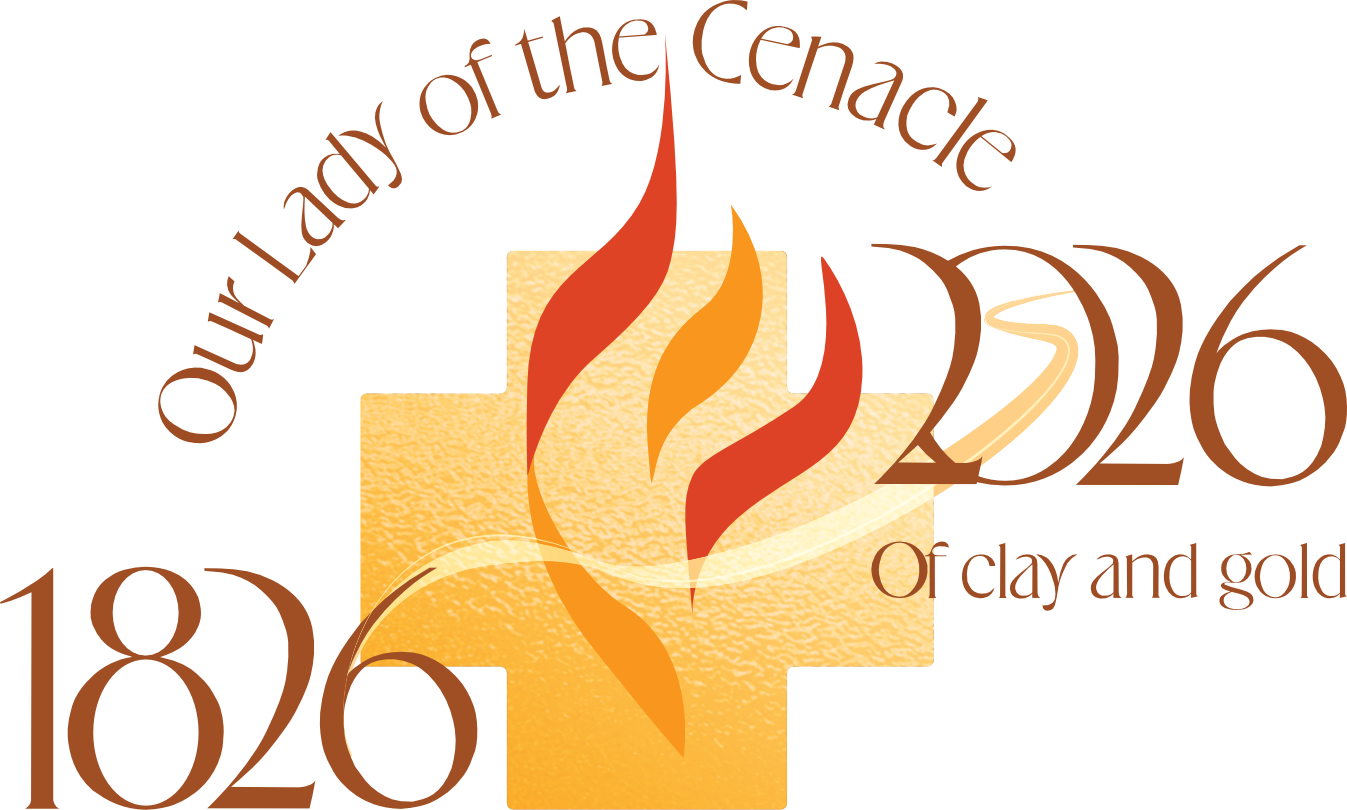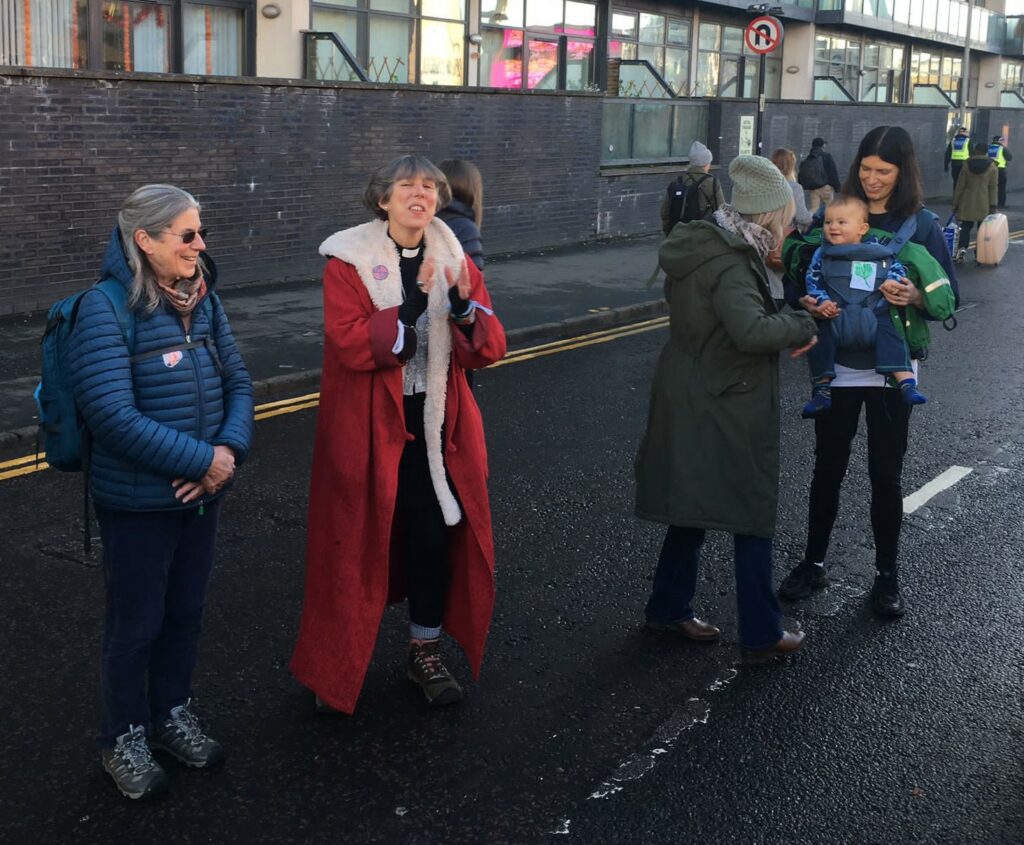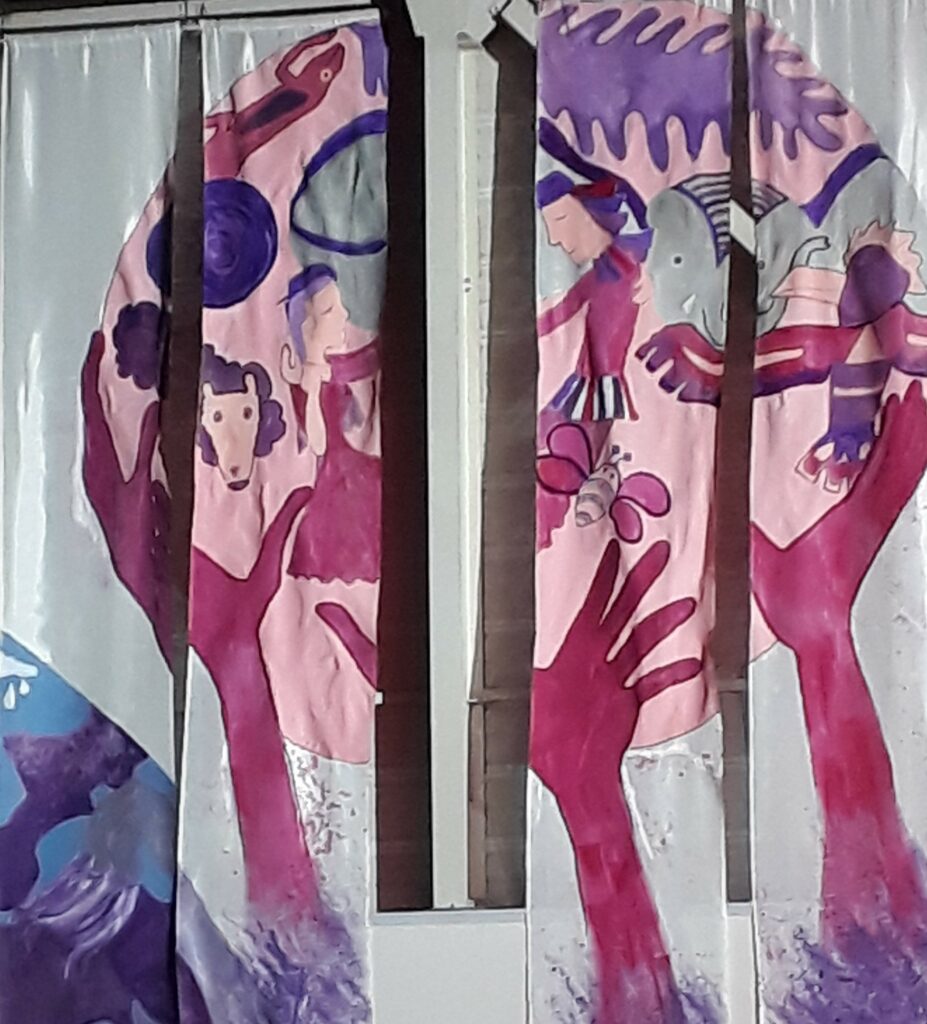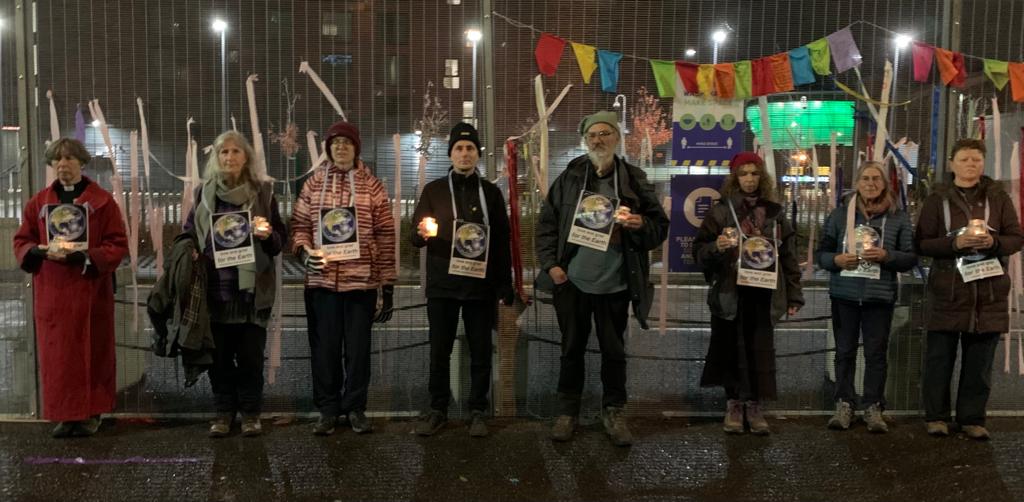Thoughts on “Camino to COP” and COP26
Barbara Wilson gives us her balance-sheet about her Camino to COP and her analysis of the results of the Glasgow Climate Conference.
Faith Hope and Love – all three were needed on our journey to Glasgow and during our time there. The ‘journey’ was the Camino to COP – a walk of about 500 miles from London to Glasgow, joined in Birmingham by a group who had walked from Bristol. Few of us walked every step but even those who joined for a day or a few hours were ‘walking to Glasgow’, full of faith and hope that the outcome of COP26 would be positive and give real hope, especially those in developing countries already affected by climate change.
I walked the first 120 miles from London to Birmingham and then went up to Glasgow to greet the group (by then 100 strong) as they walked in to Glasgow Green. The cry of ‘Basia!’ (my Polish diminutive name) as they saw me will remain one of life’s best moments. And I was proud that our pilgrims started the procession into the centre of Glasgow with many other groups who had also walked to Glasgow from as far afield as Poland and Spain.
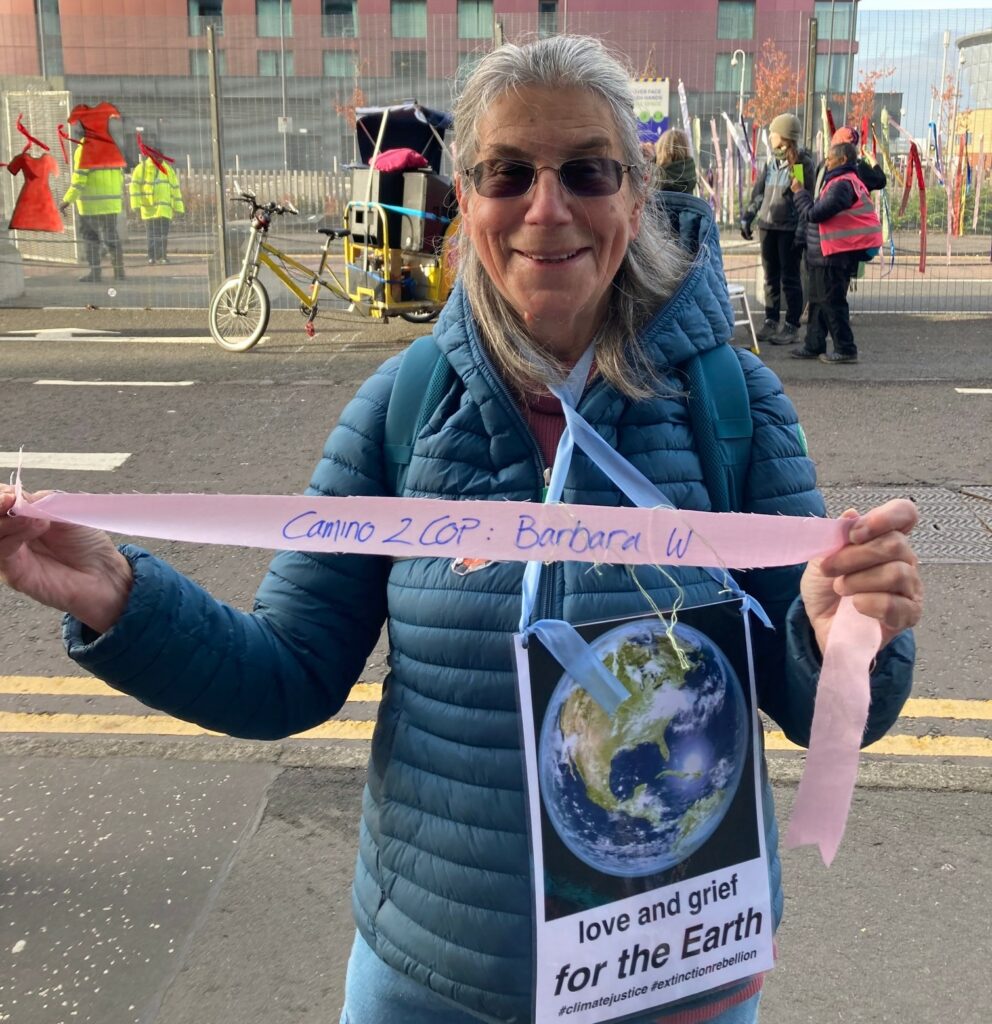
Once there we were quickly joined by groups from all over the world. I am not alone in finding the encounters with people directly affected by the Climate crisis the most positive and moving experiences of the fortnight.
Particular memories include :
- a pastor from Sydney who was an Aborigine and spoke at a session with Laudato Si, Scottish Christian Aid and Trocaire on fossil fuels. He’d come in faith but with little hope and drew on his ancestors’ wisdom to ‘walk backwards into the future’.
- A delegate from Sierra Leone whose accommodation had fallen through and was stopped by police before being rescued by Yvonne, a local woman from Africa, who took him home. He spoke at the start of a march for Migrant Justice which is inextricably linked to Climate Justice.
- A Kenyan woman activist at a panel hosted by Christian Aid and Faiths for the Future. She was careful not to be too active as she knew her life would be at risk if she was arrested
- We remembered a young man from Uganda who had been killed a few days ago for his activism
- A lively French environmental activist with a huge banner for Climate Justice who walked in with us and was very moved by wearing our Coat of Hopes which had been a ‘fellow pilgrim’ on the Camino. It is made of patches sewn by people across the country expressing their hopes and expectations and griefs for the climate. We added to it at sewing stops en route, including seven women sewing all night before COP started. Each morning we walked to the Blue Zone where the delegates were meeting inviting them and leaders to wear it, singing the special song for the coat. (uk – it even featured in a cartoon in the Financial Times)
The evening before COP began we held an all night vigil and then every day we held vigil outside the Blue Zone where delegates and observers walked past. Many stopped and talked to us. Many thanked us for being there and we were interviewed by journalists from across the world. Feedback since then has confirmed the value of this activity by ordinary citizens and the media attention it drew changed the temperature inside the discussions.
For example, someone whose company advises governments on these issues said that ‘having been to a great many COPs, there had never before been this level of protest and that it shouldn’t be underestimated what a difference it had made. The people on the streets who had travelled far and wide to show how much they cared, ensured there was much more media coverage. The media coverage ultimately puts pressure on governments and their negotiators.’ She felt the gains that were made were influenced by this. Yes, ultimately cop26 failed but within and outside the zones the temperature changed.
Encounters continued on the two main marches during the middle weekend. On Friday with young people and Fridays for the Future and on Saturday over 100,000 people in Glasgow and many more across the world.
By then the key messages were clarifying for me :
1) No more fossil fuels. The International Energy Authority has made that completely clear, It does need a just transition, which is increasingly possible with the increased efficiency and reduced cost of renewable energy.
2) The massive debt the developed world owes to developing countries. The industrial revolution and what followed has not only polluted the atmosphere and increased greenhouse gases, and the ‘export’ of the more polluting industries to these countries even today. We do the same on a smaller scale in Britain – children dying of air pollution in east London and much higher rates of asthma and other diseases in more polluted parts of the country.
This massive debt was recognised in Paris 6 years ago and even in previous COPs with a promise of $100 billion annually to developing countries. In practice much less has been provided and the majority as loans not grants – a continuing injustice. The Glasgow Pact has moved this on slightly, with agreement to a continuing discussion and review of the mechanisms. This is to help with mitigation and adaptation.
In addition there is what is really ‘reparation’ for the loss and damage which developed countries had caused through colonialism and continuing exploitation. This is more contentious and the bill it may entail could be enormous so the developed countries are understandable cautious. It is complicated because few of us (or even our ancestors) are personally responsible but all of us are complicit.
One possible answer to my questions is what Christian Climate Action does – Non Violent Direct Action. CCA was founded about 6 years ago by a small group of committed Christians who were aware of the Climate Crisis and felt that far too little was being done in response. Other organisations like Cafod, Christian Aid, Oxfam etc are excellent both at supporting communities directly and advocating for change. Laudato Si Action Platform also takes things forward.
But some of us feel the need to take more radical and direct action immediately and forcefully, using non violent means – as Pax Christi also does and following Ghandi and Martin Luther King.
When Extinction Rebellion was formed in 2019 CCA decided to join them and since then we have found strong allies in XR Faith Bridge which was the Base for our Camino to COP. It includes people from all the main faith groups in Britain. We’ve organised vigils and peaceful protests including our presence at COP in the Earth Vigil. But also more radical action for example Spraying the Treasury with fake blood in 2019 and an action about fossil fuel investment by the Church of England in St Paul’s in August. At the same time a group of us pray together every morning and have a solid and shared understanding of the value of God’s creation and our duty to preserve it as best we are able. (christianclimateaction.org)
So what do I feel about COP26 ? A massive sense of grief at being let down by world leaders who seem to have largely ignored the clear and powerful ‘cry of the poor’ which was visible and vociferous on the streets of Glasgow and in the COP itself.
But I do have some hope – from those may wonderful people I met and my fellow activists in CCA. But we need people to join us in calling for more radical and rapid change.
By Barbara Wilson, a friend of the Cenacle, november 2021.
